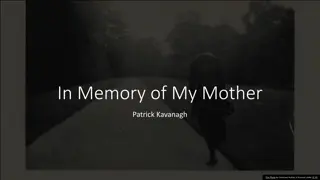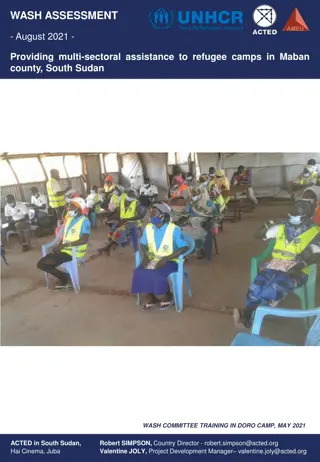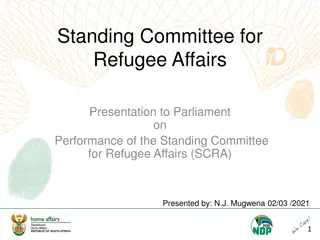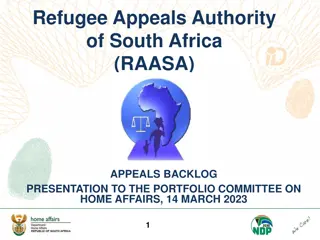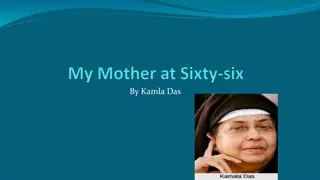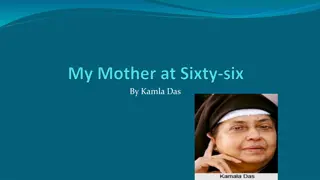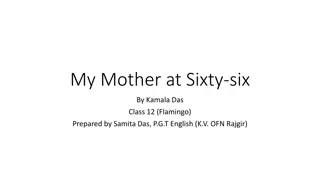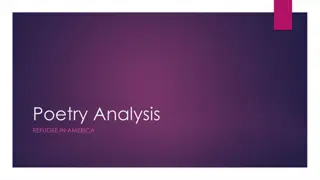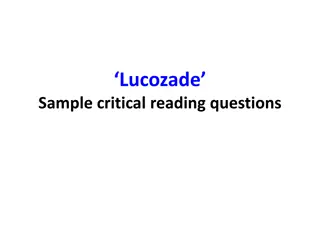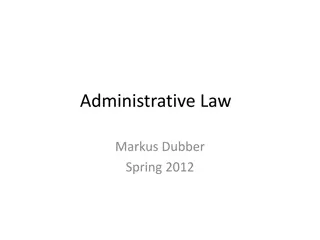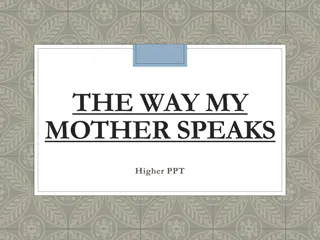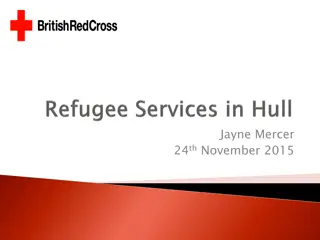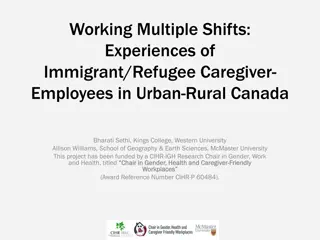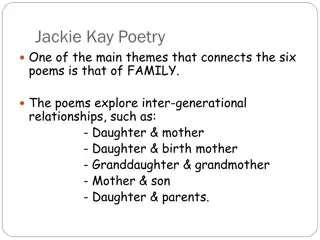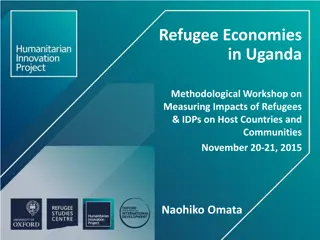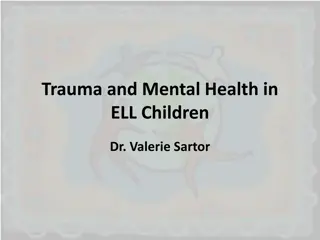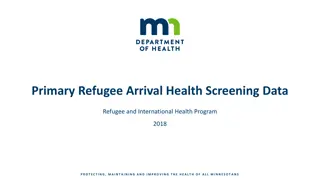Analysis of "Refugee Mother and Child" Poem in English Literature
Analysis of "Refugee Mother and Child" explores the themes of hope, tragedy, and motherly love amidst the harsh realities faced by refugees. The poem delves into the profound strength and resilience of a mother who holds onto a glimmer of hope despite the dire circumstances surrounding her and her child. Through poignant imagery and subtle symbolism, the poet captures the universal essence of maternal love and sacrifice in the face of adversity.
Download Presentation

Please find below an Image/Link to download the presentation.
The content on the website is provided AS IS for your information and personal use only. It may not be sold, licensed, or shared on other websites without obtaining consent from the author. Download presentation by click this link. If you encounter any issues during the download, it is possible that the publisher has removed the file from their server.
E N D
Presentation Transcript
Refugee Mother and Child BA 2ndYEAR english (Compulsory) ENG CE201
Analysis: Refugee Mother and Child No Madonna and Child could touch that picture of a mother's tenderness for a son she soon would have to forget The stanza is exceptionally small in length in comparison with the other stanzas. This signifies that even though her son's life is short and there is little time left, she won't give up or lose hope. This short positive stanza indicates that there is very little hope or goodness in the lives of the refugees - most of their life is like the struggle depicted in the later on in the second stanza.
Portrays a compassionate mother. Another alternative interpretation can be biblical, symbolizing Mary and Jesus. The child is unnamed, making the child universal. Foreshadowing present. This makes us aware that inevitably the child will die and it's mother will have to forget.
Analysis The air was heavy with odours of diarrhoea of unwashed children with washed-out ribs and dried-up bottoms struggling in laboured steps behind blown empty bellies. Most mothers there had long ceased to care but not this one.
Sibilance is present throughout the beginning of the second stanza. It emphasizes the hardships and the living conditions of the camp. Unlike all the other mothers who have given up hope and accepted the fact that their children will die and they can not save them, the mother in the poem still has that little glimmer of hope. This makes both the mother and the poem itself, even more tragic.
Analysis To care but not this one; she held a ghost smile between her teeth and in her eyes the ghost of a mother's pride as she combed the rust-coloured hair left on his skull - and then; singing in her eyes-began carefully The combing signifies her mother still not giving up complete hope and showing happiness that her child is alive. Contrast to the poem because of the slight happiness present - makes the scene even more touching and tragic.
The mother is faking her smile due to the overwhelming sadness she has to face in order to keep her mind off the harsh truth. The word 'ghost' is repeated in order to emphasize the point the child is dying. Connotation of death The "ghost of a mother's pride" relates to the memory of happiness she had with her son before they were in the camp and before her son got sick. The word "skull" also emphasis death. Shows how unhealthy and how sick the child is.
Analysis Senses Throughout the poem, Achebe uses a variety of sensory descriptions to describe the conditions and suffering that they have to face on a daily basis.
'odours''unwashed children''dried up'Examples are 'eyes' 'blown empty bellies' 'washed out''diarrhea'
Achebe combines touch and smell by using the technique synesthesia. An example of this is "the air was heavy with "odours", as "heavy" relates to touch and "odours" relates to smell. Another example is "singing in her eyes". This is effective as it emphasis the conditions that they have to face at the camp.
THANK YOU! THANK YOU!


